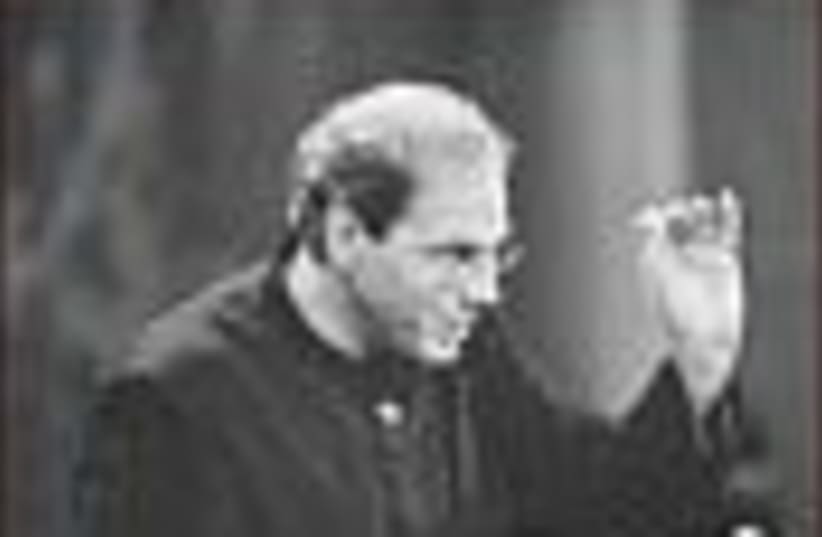| More about: | Herbert von Karajan, Richard Strauss, Arnold Schoenberg, Tel Aviv |
Shooting for five transcendent minutes of music
The visiting conductor has nothing but praise for his young Israeli performers.


| More about: | Herbert von Karajan, Richard Strauss, Arnold Schoenberg, Tel Aviv |